Online Training: “Understanding and handling disinformation for practitioners focusing on Africa”
First edition: 7-9 September 2022, 11:00-13:30 CEST-SAST / 09:00-11:30 UTC / 12:00-14:30 EAT (online)
Second edition: 19-21 October 2022, 11:00-13:30 CEST-SAST / 09:00-11:30 UTC / 12:00-14:30 EAT (online)
The European Digital Media Observatory (EDMO) is pleased to announce the launch of a new training module on “Understanding and handling disinformation for practitioners focusing on Africa”, organized in collaboration with Africa Check and Fact Space West Africa.
In recent years it has become increasingly evident that disinformation crosses borders with varying risks for different media landscapes, highlighting the importance of better understanding the similarities and differences of disinformation techniques, patterns and flows and their impact on local information environments. At the same time cooperation among fact-checkers has proven essential to detecting and reacting to disinformation in different regions of the World. In this context, and given its unique role as a platform aiming to gather stakeholders working to tackle disinformation, the European Digital Media Observatory (EDMO) will coordinate a number of regional training programmes in collaboration with local fact-checking organisations, aiming to strengthen resilience to online disinformation in different information environments, while drawing from the expertise of the European EDMO network.
The training module for practitioners focusing on Africa is composed of three sessions. The first session will focus on actors and techniques of disinformation, including agents, incentives and techniques of disinformation and social media analysis and disinformation in Africa. The second session provides a deep dive into fact-checking and verification tools, including also fact-checking standards and ethics. The final session looks into the safety and protection of journalists, with a special focus on tools to support safe journalistic work in the context of different media landscapes in Africa.
Scientific Coordinators:
Lisa Ginsborg | European University Institute and EDMO
Paula Gori | European University Institute and EDMO
Carina van Wyk | Africa Check
Rabiu Alhassan | Fact Space West Africa
Target audience:
This training is specifically aimed at practitioners focusing on Africa with an interest in learning more about disinformation challenges, fact-checking tools, and how safe journalistic work can be supported within the African media landscape.
Applications:
This edition of the EDMO online training on Understanding and handling disinformation for practitioners focusing on Africa is limited to 30 participants. Further editions of this module will be considered in case of high interest.
Applications are now closed. The organizers will be responsible for selecting the participants for the training. Participants will be selected with an effort made to ensure a balanced representation across gender, nationality, and institutional lines.
Further information including a detailed agenda and the speakers of the training sessions will be available shortly on this webpage.
This training is part of a series of residential and online training modules organized by EDMO. For more information, visit https://edmo.eu/resources/training-programme/.
Programme
| Day 1 | |
| 11:00 – 11:05CEST/SAST | Welcome and introduction
|
| 11:05 – 11:15CEST/SAST | Round of introductions |
| 11:15 – 11:55CEST/SAST | Module 1 – Actors and techniques of disinformation (Part 1)
|
| 11:55 – 12:35CEST/SAST |
|
| 12:35 – 12:40CEST/SAST | Coffee Break |
| 12:40 – 13:30CEST/SAST | Module 1 – Actors and techniques of disinformation (Part 2)
|
| Day 2 | |
| 11:00 – 12:00CEST/SAST | Module 2 – Fact-checking and verification (Part 1)
|
| 12:00 – 12:15CEST/SAST | Coffee Break |
| 12:15 – 12:45CEST/SAST | Module 2 – Fact-checking and verification (Part 2)
|
| 12:45 – 13:30CEST/SAST |
|
| Day 3 | |
| 11:00 – 11:45CEST/SAST | Module 3 – Safety and protection of journalists (Part 1)
|
| 11:45 – 12:30CEST/SAST |
|
| 12:30 – 12:45CEST/SAST | Coffee Break |
| 12:45 – 13:15CEST/SAST | Module 3 – Safety and protection of journalists (Part 2)
|
| 13:15 – 13:30CEST/SAST | Closing remarks
|
Meet your trainers
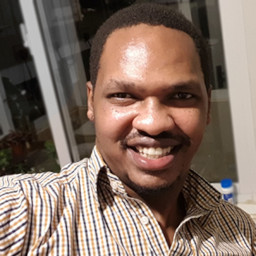
Caleb is an explorer of digital spaces and has researched and applied various technologies to address election violence, good governance, extremism and conflict mitigation. He has worked with different actors across Africa to respond to violent conflict applying digital tools. He has skills in digital media monitoring, data and network analysis and community building. At Build Up, Caleb leads digital conflict programs, information disorder and depolarization projects primarily in Africa.
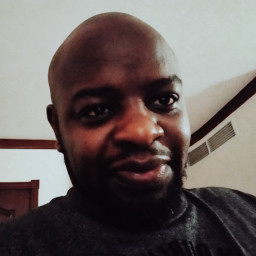
Lee is editor of Africa Check, the continent’s first independent and non partisan fact-checking organisation. He retains a key interest in Africa’s place in the global information ecosystem and is keen to contribute to the collaborative effort to culture more informed and engaged audiences in the region.
![e_mode":"faceshow","faces":["451_-1906_1521_-836"]}](https://edmo.eu/wp-content/uploads/2022/03/Keegan-Leech.jpg)
Keegan Leech is a researcher at Africa Check, the continent’s first independent non-profit fact-checking organisation. He holds a bachelor of sciences in English literature, applied mathematics, and physics and electronics. His work as a fact-checker has covered topics such as health misinformation, migration, and misleading statistics, and he’s run many training sessions sharing Africa Check’s methods with students, journalists, and other fact-checkers.
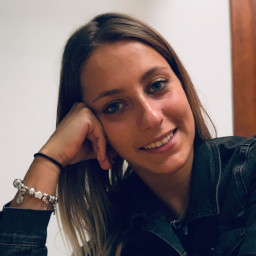
Camilla Vagnozzi is the managing editor at Facta.news, a debunking project she has codesigned and launched. Camilla holds a Bachelor in Modern Italian Literature and a Master in Communication. Camilla has been involved with fact-checking for the last four years, after an experience in a Marketing Agency. Between 2017 and 2018 Camilla worked at the Public Affairs Office of the US Consulate in Milan.
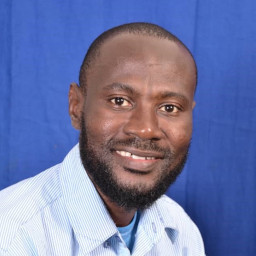
Muheeb Saeed is a Senior Programme Officer at the Media Foundation for West Africa (MFWA) and head of the organisation’s Freedom of Expression programme. He is in charge of coordinating the organisation’s freedom of expression monitoring and campaigns across West Africa. He graduated from the Ghana Institute of Journalism in the year 2000, and also has a degree in French. He had editorial stints in radio and public relations before joining the MFWA in 2015.
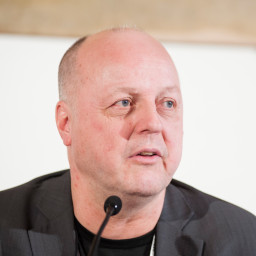
Jochen Spangenberg is Deputy Head of Research and Cooperation Projects at Germany’s international broadcaster Deutsche Welle. The focus of his work over the past decade has been on verification of digital content and countering disinformation in a news media context. Jochen also lectures at the Free University Berlin in Media & Communication Sciences, is an active supporter of MIL NGO Lie Detectors, sits on the Advisory Board (AB) of EDMO (European Digital Media Observatory) and is AB Chairman of CEDMO (European Digital Media Observatory).
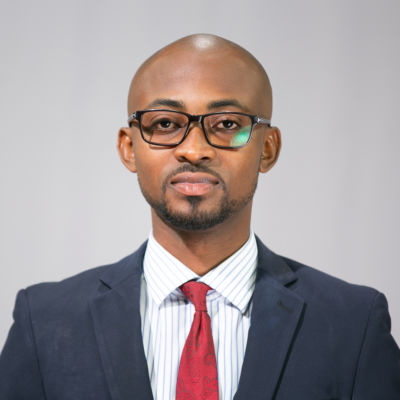
Rabiu is an experienced journalist with a demonstrable history of working in television, radio, print and digital media for a decade and a winner of the prestigious Erasmus Mundus scholarship. With a diverse reporting background including business and Finance, politics and court reporting, he is leading the FactSpace West Africa team in Ghana and The Gambia.
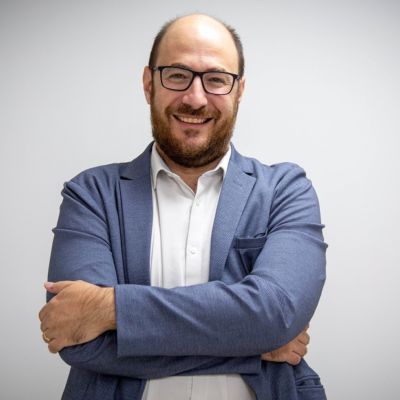
Carlos Hernández-Echevarría oversees Maldita.es’ public policy and advocacy operation. He engages with institutions interested in fighting disinformation and advancing more effective policy solutions against it. Before Maldita.es, Carlos worked in TV for 15 years. He has a BA in Journalism (U. San Pablo CEU, Madrid, 2006) and a MA in Elections and Campaign Management (Fordham U.-Fulbright Program, New York, 2014). He is a regular contributor in media and a lecturer at Universidad Europea.
Caleb is an explorer of digital spaces and has researched and applied various technologies to address election violence, good governance, extremism and conflict mitigation. He has worked with different actors across Africa to respond to violent conflict applying digital tools. He has skills in digital media monitoring, data and network analysis and community building. At Build Up, Caleb leads digital conflict programs, information disorder and depolarization projects primarily in Africa.
Lee is editor of Africa Check, the continent’s first independent and non partisan fact-checking organisation. He retains a key interest in Africa’s place in the global information ecosystem and is keen to contribute to the collaborative effort to culture more informed and engaged audiences in the region.
Keegan Leech is a researcher at Africa Check, the continent’s first independent non-profit fact-checking organisation. He holds a bachelor of sciences in English literature, applied mathematics, and physics and electronics. His work as a fact-checker has covered topics such as health misinformation, migration, and misleading statistics, and he’s run many training sessions sharing Africa Check’s methods with students, journalists, and other fact-checkers.
Camilla Vagnozzi is the managing editor at Facta.news, a debunking project she has codesigned and launched. Camilla holds a Bachelor in Modern Italian Literature and a Master in Communication. Camilla has been involved with fact-checking for the last four years, after an experience in a Marketing Agency. Between 2017 and 2018 Camilla worked at the Public Affairs Office of the US Consulate in Milan.
Muheeb Saeed is a Senior Programme Officer at the Media Foundation for West Africa (MFWA) and head of the organisation’s Freedom of Expression programme. He is in charge of coordinating the organisation’s freedom of expression monitoring and campaigns across West Africa. He graduated from the Ghana Institute of Journalism in the year 2000, and also has a degree in French. He had editorial stints in radio and public relations before joining the MFWA in 2015.
Jochen Spangenberg is Deputy Head of Research and Cooperation Projects at Germany’s international broadcaster Deutsche Welle. The focus of his work over the past decade has been on verification of digital content and countering disinformation in a news media context. Jochen also lectures at the Free University Berlin in Media & Communication Sciences, is an active supporter of MIL NGO Lie Detectors, sits on the Advisory Board (AB) of EDMO (European Digital Media Observatory) and is AB Chairman of CEDMO (European Digital Media Observatory).
Rabiu is an experienced journalist with a demonstrable history of working in television, radio, print and digital media for a decade and a winner of the prestigious Erasmus Mundus scholarship. With a diverse reporting background including business and Finance, politics and court reporting, he is leading the FactSpace West Africa team in Ghana and The Gambia.
Carlos Hernández-Echevarría oversees Maldita.es’ public policy and advocacy operation. He engages with institutions interested in fighting disinformation and advancing more effective policy solutions against it. Before Maldita.es, Carlos worked in TV for 15 years. He has a BA in Journalism (U. San Pablo CEU, Madrid, 2006) and a MA in Elections and Campaign Management (Fordham U.-Fulbright Program, New York, 2014). He is a regular contributor in media and a lecturer at Universidad Europea.
